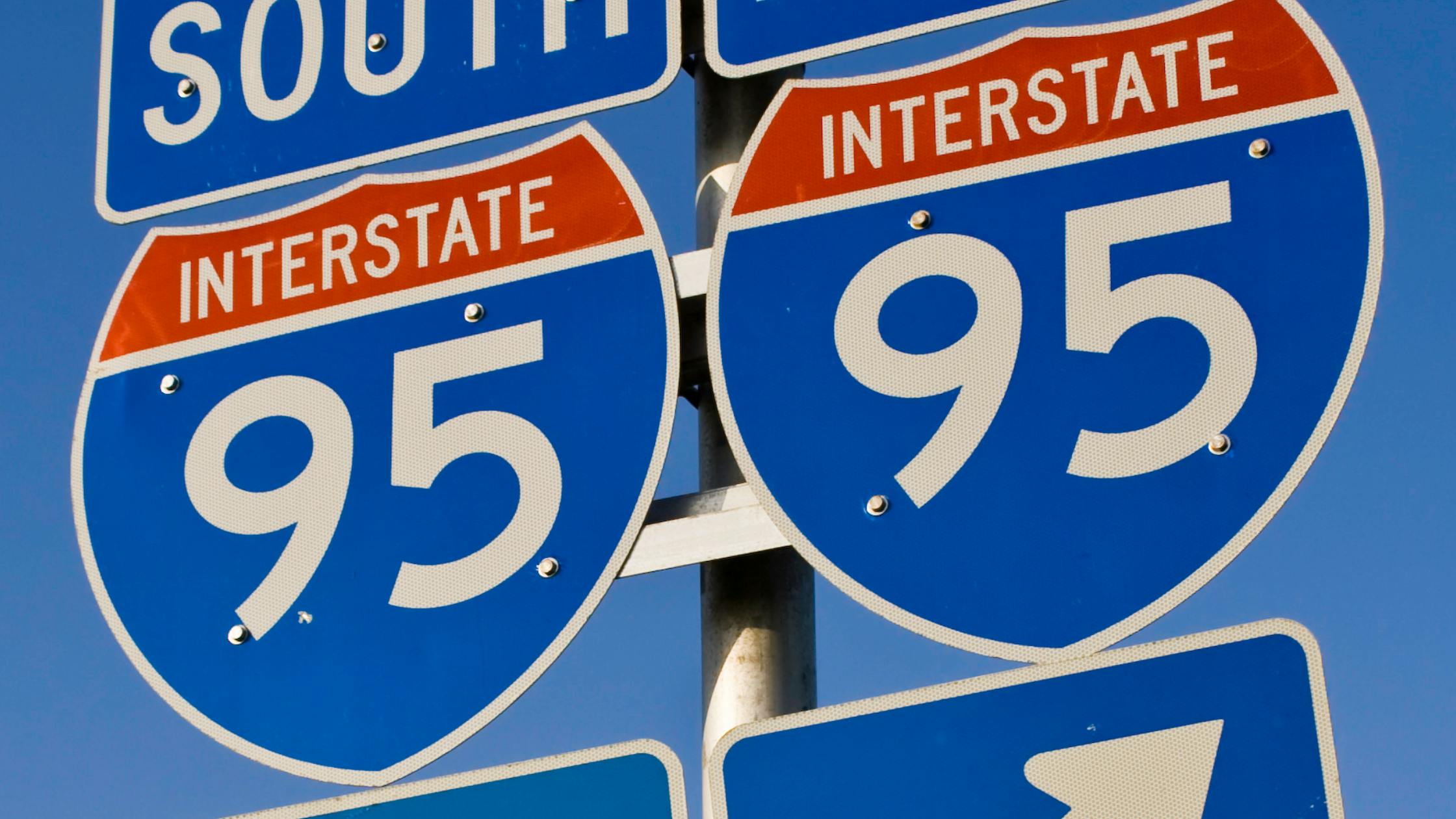Here’s how much you actually need to buy a home in the top UK cities
If you're hoping to buy a home in 2025, your chosen city can make or break your chances for getting on the ladder. The average buyer in London needs to earn over £101,000 a year and save more than £53,000 for a 10% deposit, for example. Over in Liverpool however, you could potentially buy with an income of just £32,600 and a deposit of around £16,300. With so much variation between different cities, let’s take a look at what it actually takes to buy a home where you want to live.
We boost budgets by £88,000 on average
Find out how much you could borrow and all the ways you could boost your budget by creating a free Tembo plan today.
How much would you need to buy a home in each UK city?
To work out how much you need for a home in your chosen city, we first need to explore average property prices. Aberdeen is the cheapest city, with the average home costing £131,900. London is unsurprisingly the most expensive, with the average property price standing at £534,400. But there’s lots of variation in between these two figures, meaning your budget may stretch further if you’re able to be flexible on location.

Let's break that down even further...
Aberdeen
Aberdeen is one of the most affordable places to buy a home in the UK, with an average property price of just £131,900. If you’re buying with a 10% deposit, you’d need to save around £13,200 upfront and take out a mortgage for around £118,700. Lenders typically offer mortgages of up to 4.5 times your income, meaning you’d need to earn roughly £26,400 a year to get a mortgage of this size.
If you’re able to put down a 20% deposit instead, your mortgage would drop to around £105,500, reducing your required income to just £17,600.
Belfast
If you’re looking at buying your first home in Belfast, you’ll find average prices are among the lowest of the UK’s major cities - around £188,400. That means with a 10% deposit, you’d need to save roughly £18,800 upfront. Lenders typically offer mortgages of up to 4.5 times your income, so you’d need to earn around £37,700 a year to borrow the remaining 90%.
Even with a 20% deposit, which would reduce your borrowing and potentially secure better rates, you’d still need to earn about £33,500 to secure an 80% mortgage, and pass the lender’s affordability criteria and credit checks.
Birmingham
With an average Birmingham property price of £213,200, a 10% deposit would be £21,300. That leaves a mortgage of just under £192,000, meaning you’d need to earn around £42,600 a year to borrow enough, based on a 4.5x income multiple.
If you’re able to boost your deposit to 20%, you could buy a home with a smaller mortgage of £170,600, and a smaller income of just under £28,500. Birmingham sits somewhere in the middle when it comes to affordability - more accessible than southern cities like London and Oxford, but still a stretch for many solo buyers without family support or a higher-than-average income.
Learn more: How big of a mortgage can I get?
Bournemouth
The average property price in Bournemouth is around £324,600, making it one of the more expensive cities in the UK for first-time buyers. With a 10% deposit, you’d need to save roughly £32,500 upfront and take out a mortgage of just over £292,000 for the remainder of the purchase. To get a mortgage of this size, you’d typically need an income of around £64,900, assuming your lender uses a 4.5x income multiplier during their affordability checks.
If you can stretch to a 20% deposit instead, your mortgage would drop to approximately £259,700, reducing the required income to about £43,300.
Bristol
Over in Bristol, the average property price stands at £341,500, meaning you’d need to save around £34,150 for a 10% deposit and take out a mortgage of around £307,400. To get a mortgage of this size, you’d need to earn around £68,300 a year, assuming the lender multiples borrowers’ incomes by 4.5.
With a 20% deposit, your mortgage would fall to around £273,200, and the income needed would drop to about £45,500.
Cardiff
The average property price in Cardiff sits at £255,100, making it relatively affordable compared to many southern cities, but on the pricer side compared to elsewhere in Wales. With a 10% deposit, you’d need to save around £25,500 upfront. That would leave you needing a mortgage of roughly £229,600, which means you'd need to earn around £51,000 a year.
If you can increase your deposit to 20%, the required mortgage drops to about £204,100, and the income needed falls to around £34,000.
Edinburgh
Edinburgh is known for being one of the priciest cities in Scotland, and it’s no wonder with the average house price sitting at around £277,000. A 10% deposit would come to about £27,700, leaving you needing a mortgage of roughly £249,300. To borrow that much, you’d need to earn around £55,400 a year.
With a 20% deposit, your required mortgage drops to around £221,600, bringing the income needed down to roughly £36,900.
Glasgow
Glasgow is one of the most affordable major cities in the UK for first-time buyers, with an average property price of just £156,400. With a 10% deposit, you’d need to save around £15,600, leaving a mortgage of roughly £140,800. To borrow that amount, you’d need to earn around £31,300 a year, assuming the lender multiples borrowers’ incomes by 4.5.
A 20% deposit would reduce the mortgage to around £125,100, and the required income to just under £20,900.
Leeds
With an average property price of £212,700, Leeds sits somewhere in the middle in terms of affordability. A 10% deposit would be around £21,300, leaving a mortgage of roughly £191,400. To borrow that amount with a 4.5x income mortgage you’d need to earn around £42,500 a year.
With a 20% deposit, the mortgage falls to £170,200, and the income required drops to about £28,400.
Leicester
The average property price in Leicester is around £227,700. If you’re buying with a 10% deposit, you’ll need to save about £22,800 upfront. That leaves a mortgage of roughly £204,900, which would require an income of around £45,500 to secure. With a 20% deposit, your mortgage would drop to approximately £182,200, bringing the income requirement down to about £30,400.
Liverpool
Liverpool is one of the most budget-friendly cities for first-time buyers, with an average property price of just £163,100. A 10% deposit comes in at around £16,300, leaving a mortgage of roughly £146,800. To borrow that amount, you’d need to earn around £32,600 a year. If you’re able to put down a 20% deposit instead, your mortgage would fall to about £130,500, and the income needed drops to just under £21,800.
London
As the UK’s most expensive city, buying your first home in London requires serious financial firepower. With an average house price of £534,400, a 10% deposit would set you back around £53,400. That leaves a mortgage of about £481,000, meaning you’d need to earn roughly £106,900 a year to get approved. Even with a 20% deposit, your mortgage would still be around £427,500, requiring an income of around £71,300.
Manchester
Manchester remains one of the UK’s most dynamic housing markets, with average property prices at around £231,300. A 10% deposit would be approximately £23,100, leaving a mortgage of just over £208,000. To borrow that much, you’d need to earn around £46,300 a year. With a 20% deposit, the mortgage falls to about £185,000, and the required income drops to just over £30,800.
Newcastle
Newcastle is one of the more affordable major cities for first-time buyers, with an average property price of £158,800. A 10% deposit works out to around £15,900, leaving a mortgage of approximately £142,900. To borrow that amount, you’d need to earn roughly £31,800 a year. With a 20% deposit, your mortgage would drop to around £127,000, reducing the income needed to about £21,200.
Nottingham
Nottingham’s average house price is around £205,600, making it relatively accessible for first-time buyers. A 10% deposit would be about £20,600, leaving a mortgage of approximately £185,000. You’d need to earn around £41,100 a year to borrow that much. If you’re able to put down a 20% deposit, your mortgage drops to £164,500 and the income needed falls to around £27,400.
Find out what you can afford with our mortgage calculator
Oxford
Oxford is one of the least affordable cities in the UK, with an average property price of £452,300. A 10% deposit comes to around £45,200, leaving a mortgage of approximately £407,100. To borrow that much, you’d need an income of about £90,500. Even with a 20% deposit, your mortgage would still be £361,800, requiring earnings of around £60,300.
Portsmouth
In Portsmouth, the average property price is £277,000. A 10% deposit would be £27,700, leaving a mortgage of around £249,300. That means you’d need to earn roughly £55,400 a year. With a 20% deposit, the mortgage falls to £221,600, and the income required drops to about £36,900.
Sheffield
Sheffield offers relatively affordable prices for first-time buyers, with the average property costing around £175,700. A 10% deposit would be about £17,600, leaving a mortgage of roughly £158,100. You’d need an income of around £35,100 to borrow that amount. With a 20% deposit, your mortgage drops to about £140,600, and the income needed falls to £23,400.
Southampton
The average property price in Southampton is £260,400. With a 10% deposit, you’d need to save about £26,000, leaving a mortgage of £234,400. That would require an income of roughly £52,100. If you put down a 20% deposit, your mortgage falls to £208,300 and the income needed drops to £34,700.
20 City Composite
The 20-city average property price across the UK is £309,000. A 10% deposit comes to about £30,900 on average, meaning you’d need a mortgage of £278,100 to bridge the gap. To get a mortgage of this size, you’ll usually need an income of around £61,800. With a 20% deposit, your mortgage drops to £247,200 and the income needed falls to around £41,200.
Get expert help from the UK’s Best Mortgage Broker
Start your home-buying journey by creating a free Tembo plan today. It’s free, takes 10 minutes, and there’s no credit check involved. At the end, you’ll get a personalised plan of all the ways you could buy, including how you could boost your budget
How much do you need to save for a deposit?
You’ll typically need a deposit of between 10 and 20% to get a mortgage, meaning you’d need between £53,000 to £106,000 for an average London home, or between £23,000 to £46,000 in Manchester. If this sounds too steep, don’t worry because you may be able to get a mortgage with a 5% deposit thanks to low deposit mortgage schemes such as Deposit Unlock. In some cases, you might even be able to buy a house with no deposit at all, but you’ll usually need a guarantor or qualify for a 100% mortgage.
If you're able to save a deposit of 20% or above, you may find it easier to buy a property. That’s because a bigger deposit often gives you access to a wider choice of mortgage products, and it could also mean lower interest rates, saving you money over the lifetime of the loan. This is because having a bigger deposit also lets you take out a smaller mortgage, reducing your monthly payments. It may also mean you might be able to buy the home you want on a lower salary.
How much can you borrow?
The amount you can borrow for a mortgage isn’t dependent on where you live in the UK - it's determined by your income. When you apply for a mortgage, the lender will usually work out how much you can afford to borrow by multiplying your income by a set figure - usually 4 to 4.5 - although the amount you will be offered is also influenced by other factors like your credit score. So if you earn £40,000, for example, you could expect to borrow around £180,000. But it may be possible to get a bigger mortgage.

What if you need a bigger mortgage?
If a standard mortgage isn’t enough to buy a home in your chosen city, you’re not alone. In fact, the average UK homeowner needs 10 times their annual earnings to afford a house. This can make things particularly difficult if you’re hoping to get on the ladder by yourself, but even couples can struggle too.
The good news is you may be able to get a bigger mortgage, thanks to a growing number of innovative lenders and first-time buyer initiatives. For example, some lenders will offer 5.5x income mortgages, providing you meet their affordability criteria and have a good credit score. You’ll usually need to be permanently employed (rather than self-employed), earn at least £37,000 as a solo applicant or a joint income of £55,000 if buying with a friend or partner. You might even qualify for a 6x income mortgage, but you’ll usually need to meet the same criteria as above and not be buying a new build.
These aren’t the only schemes, though - there are loads of budget boosting options available which could help boost your budget or buy sooner. To discover what schemes you could qualify for without applying, create a free Tembo plan today.
Discover your true buying budget
Get a personalised Tembo plan on how you could boost your buying budget today.






